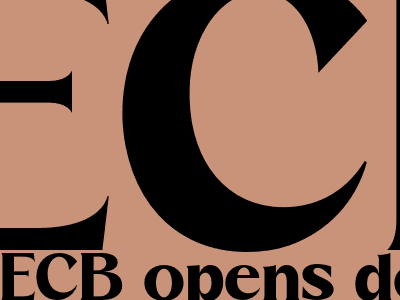
ECB opens door to ‘pioneers’ and ‘visionaries’ for digital euro
European Central Bank invites feedback on digital euro from experts around the world
The European Central Bank (ECB) has invited experts from around the world to provide feedback on its plans for a digital euro. The ECB is considering launching a digital euro to complement cash and other forms of electronic money. A digital euro would be a legal tender issued by the ECB and would be available to all eurozone citizens and businesses.
The ECB is seeking feedback from experts on a wide range of issues, including the design of the digital euro, the technology that will be used to support it, and the governance arrangements that will be put in place. The ECB is also interested in hearing from experts about the potential benefits and risks of a digital euro.
ECB’s call for feedback is a sign of commitment to digital euro
The ECB’s call for feedback is a sign of its commitment to exploring the possibility of a digital euro. The ECB has been working on the digital euro for several years and has already conducted a number of public consultations. The ECB is now seeking feedback from experts to help it refine its plans for a digital euro.
The ECB’s decision to invite feedback from experts from around the world is a sign of its commitment to transparency and inclusiveness. The ECB wants to ensure that all stakeholders have a say in the development of the digital euro.
Feedback will help ECB shape its digital euro plans
The feedback that the ECB receives from experts will help it shape its plans for a digital euro. The ECB will use the feedback to develop a more detailed design for the digital euro and to identify the key challenges that need to be addressed.
The ECB is expected to make a decision on whether to launch a digital euro by the end of 2023. If the ECB decides to launch a digital euro, it is likely to be introduced by 2025.
Digital euro could have a major impact on the eurozone economy
A digital euro could have a major impact on the eurozone economy. A digital euro would make it easier for people to make payments, both online and offline. It would also make it easier for businesses to operate across borders.
The ECB believes that a digital euro could also help to boost economic growth in the eurozone. The ECB believes that a digital euro would make it easier for people to save and invest, which would lead to higher levels of investment and economic growth.
ECB is taking a cautious approach to digital euro
The ECB is taking a cautious approach to the development of the digital euro. The ECB wants to ensure that the digital euro is safe, secure, and efficient. The ECB is also working to ensure that the digital euro does not have a negative impact on the financial stability of the eurozone.
The ECB’s cautious approach is likely to delay the introduction of the digital euro. However, the ECB’s commitment to transparency and inclusiveness is likely to ensure that the digital euro is a success.